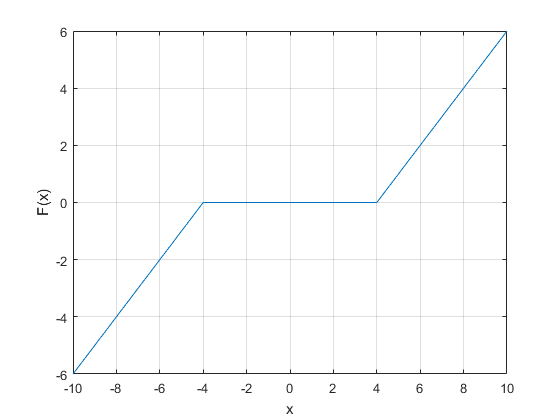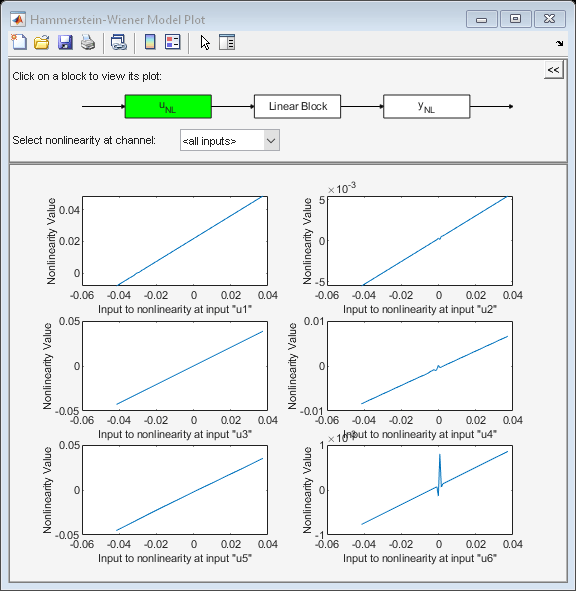idDeadZone
Create a dead-zone nonlinearity estimator object
Description
idDeadZone is an object that stores the dead-zone
nonlinearity estimator for estimating Hammerstein-Wiener models.
Use idDeadZone to define a nonlinear function , where y and x are scalars, and
θ represents the parameters a and
b, which define the zero interval.
The dead-zone nonlinearity function has the following characteristics:
For example, in the following plot, the dead-zone is in the interval
[-4,4].

The value F(x) is computed by evaluate(NL,x), where
NL is the idDeadZone object.
For idDeadZone object properties, see Properties.
Creation
Description
NL = idDeadZone[NaN NaN]. The
initial value of the zero interval is determined from the estimation data range, during
estimation using nlhw. Use dot notation to customize the object
properties, if needed.
NL = idDeadZone('ZeroInterval',[a,b])[a,b].
Alternatively, use NL = idDeadZone([a,b]).
